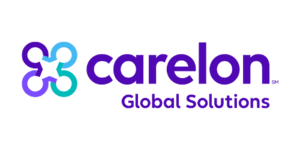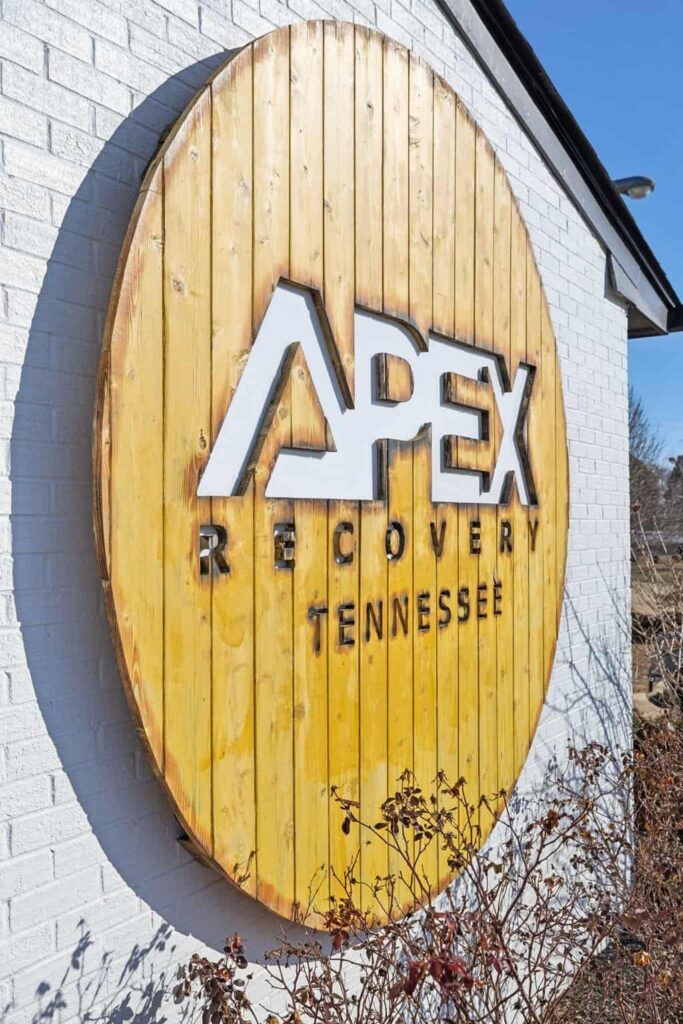










We Accept Most Major Health Insurance
Apex Recovery Tennessee is dedicated to providing premium, inpatient mental health treatment tailored to meet the unique needs of each individual. With fully licensed, accredited behavioral health facilities, they focus on delivering exceptional, high-quality care in a comfortable and supportive environment. Conveniently located near major cities such as Nashville, Memphis, Knoxville, Clarksville, and Murfreesboro, our high-end mental health treatment facilities accept health insurance for residential rehabilitation. To make the process easier, Apex Recovery Tennessee offers to check your health insurance coverage levels on your behalf, giving you the information you need to begin your recovery with confidence.
If you’re exploring options for inpatient care, Apex Mental Health Recovery is here to guide you every step of the way. Our team of professionals is committed to helping you understand your coverage and work through the details so you can focus on your residential treatment. Take the first step toward recovery by calling us today at (615) 703 4639 to learn more about our inpatient mental health programs and how they can support you in accessing the care you deserve.
Check Your Insurance
with Apex Recovery
Apex Recovery Tennessee accepts insurance and can verify your coverage levels on your behalf. Our qualified team help you understand your benefits, making the process seamless and stress-free. This allows you to focus entirely on accessing the high-quality care you need.

What is an Inpatient Mental Health Treatment Facility?
An inpatient mental health treatment facility is a residential program where people receive 24/7 monitored care. Live-in rehab offers a structured environment designed to address mental health challenges with comprehensive support, including therapy, medication management, and emotional care.
Residential treatment facilities provide round-the-clock access to professional resources and supervised care, giving you stability during recovery. The structured environment gives a safe and therapeutic space, helping people focus entirely on healing and developing skills to manage their mental health long-term.
Check Your Health Insurance Coverage
"*" indicates required fields
Does Insurance Cover Inpatient Mental Health Treatment?
Yes, insurance does often cover inpatient mental health treatment, but coverage levels vary by provider and plan. Apex Recovery Tennessee can assist by reviewing your health insurance coverage, making sure you understand the benefits available for residential mental health treatment.
Insurance plans may include coverage for services such as therapy, medication management, and 24/7 monitored care. Apex Mental Health Recovery specializes in collaborating with insurance providers to help maximize your benefits, making high-quality behavioral health treatment both comprehensive and accessible, call us today at (615) 703 4639 to learn more.
How Long Does Insurance Pay for Inpatient Mental Health Treatment?
Some insurance plans may cover up to 30 days of inpatient mental health treatment, while others offer longer or shorter stays based on the specific terms of your policy. Coverage for inpatient mental health treatment varies widely, so it is necessary to review your plan details.
Apex Recovery Tennessee can verify your insurance coverage levels on your behalf. Our qualified team is ready to discuss your inpatient mental health treatment needs and help you understand your options. Verify your insurance with us today to take the first step toward thorough mental health recovery – remember, we are here to listen.
Inpatient Mental Health Treatment Centers in Tennessee That Accept Insurance
Accessing high-quality inpatient mental health care can feel overwhelming, but many residential facilities in Tennessee accept insurance to ease the financial burden. Here are two trusted locations offering comprehensive care to address diverse mental health needs:
- Apex Recovery Brentwood: 209 Ward Cir, Brentwood, TN 37027
- Apex Recovery Columbia: 2710 Trotwood Ave STE A & B, Columbia, TN 38401
How to Find Residential Behavioral Health Recovery Centers Near Me That Take Insurance
Finding residential mental health centers that accept insurance in Tennessee can be simple with a strategic approach. Whether you’re in Nashville, Knoxville, or Memphis, use these resources for effective guidance:
- Use your insurance provider’s directory: Check the online directory offered by your insurance provider. Use keywords like “residential mental health centers near me” or search by city (e.g., Memphis or Knoxville) to find options easily.
- Check SAMHSA’s Treatment Locator: The Substance Abuse and Mental Health Services Administration (SAMHSA) has a treatment locator that lists residential facilities accepting insurance. Cities like Nashville, Brentwood, and Columbia have recognized centers featured on this resource.
- Call the number on your insurance card: Dial the customer service number printed on your insurance card. A representative can confirm your coverage for inpatient mental health care and recommend nearby accredited facilities.
- Check the facility’s website to see if they accept insurance: Many inpatient treatment centers detail their insurance partnerships on their websites. Search their insurance policy page to see if your provider is listed.
- Contact the facility and ask if they take insurance: Call the residential treatment center directly to verify their insurance acceptance. This proactive step gives clarity about your coverage and out-of-pocket costs.
Free Mental Health Assessment
Benefits of Choosing an Inpatient Mental Health Center
Selecting an inpatient mental health center offers a focused and supportive pathway to recovery. Residential treatment facilities provide comprehensive care tailored to personal needs, giving you long-term stability and well-being.
- 24/7 professional care and crisis support: Around-the-clock access to trained professionals allows for immediate support during crises, creating a reliable safety net for patients during their recovery process.
- Structured routine and a safe, controlled environment: Inpatient mental health centers provide a predictable daily schedule within a secure setting, minimizing stressors and promoting emotional and mental stability throughout treatment.
- Intensive therapy with a multidisciplinary treatment team: Patients benefit from collaborative care involving therapists, psychiatrists, and counselors, ensuring a holistic and personalized approach to addressing complex mental health needs.
- Medication management and close health monitoring: Regular oversight allows for medication to be prescribed, adjusted, and monitored appropriately while addressing any potential side effects promptly.
- Peer support and time away to focus on recovery: Engagement with fellow patients gives you a sense of community and understanding, while time away from everyday pressures allows full focus on mental health healing.
Common Mental Health Conditions Treated in Residential Facilities in Tennessee
Mood Disorders Treated in Live-in Recovery Programs
Mood disorders are mental health conditions characterized by persistent changes in mood that affect daily life. Live-in recovery programs provide structured settings where people can receive therapies, medication management, and emotional support tailored to address these issues effectively.
Examples of mood disorders treated in residential facilities include depression, characterized by prolonged sadness and hopelessness, and bipolar disorder, which involves fluctuations between depressive and manic episodes. Live-in recovery programs focus on stabilizing mood and teaching coping mechanisms.
Anxiety Disorders Supported in Residential Mental Health Programs
Anxiety disorders involve excessive worry or fear that disrupts daily activities. Residential mental health programs provide 24/7 support, including therapeutic interventions and personalized care plans, to address the underlying causes and symptoms of anxiety.
Conditions like generalized anxiety disorder, marked by constant worry, and panic disorder, characterized by sudden episodes of intense fear, are commonly treated. Residential mental health programs create safe environments to aid recovery and teach strategies for managing anxiety long-term.
Personality Disorders Treated in Full-Time Rehab Facilities
Personality disorders are enduring patterns of behavior and thought that deviate from societal norms, often leading to distress or impaired functioning. Full-time rehab facilities offer comprehensive care, including therapy, skill-building sessions, and continuous support, to help people achieve healthier interpersonal relationships and self-awareness.
Conditions such as borderline personality disorder, involving extreme emotional instability, and narcissistic personality disorder, characterized by an inflated self-image and need for admiration, are addressed with customized treatment plans focused on long-term recovery.
PTSD and Trauma-Focused On-Site Care
Post-traumatic stress disorder (PTSD) arises after experiencing or witnessing traumatic events. On-site, trauma-focused care supports people by providing therapies like cognitive processing therapy and eye movement desensitization and reprocessing (EMDR), designed specifically for trauma recovery.
Examples of post-traumatic stress disorder treated include combat-related PTSD commonly seen in veterans, and PTSD stemming from childhood trauma such as abuse or neglect. On-site mental health treatment facilities offer safe environments to process trauma and regain emotional stability.
OCD and Related Conditions in Stay-In Facilities
Obsessive-compulsive disorder (OCD) is characterized by intrusive thoughts and repetitive behaviors intended to reduce distress. Stay-in facilities treat OCD with evidence-based methods like exposure and response prevention (ERP) therapy and medication.
Conditions treated may include OCD and related disorders such as body dysmorphic disorder, where individuals obsess over perceived flaws in their appearance. Residential programs provide structured care to disrupt compulsive cycles and mitigate distress.
Schizophrenia and Psychotic Disorders in Inpatient Settings
Schizophrenia and psychotic disorders involve distorted thoughts, emotions, and perceptions, often including hallucinations or delusions. Inpatient settings provide round-the-clock care and specialized treatments like antipsychotic medications and integrative therapies.
Examples include schizophrenia, with symptoms of disorganized thinking and hallucinations, and schizoaffective disorder, which combines mood disorder symptoms with psychosis. Inpatient settings aim to stabilize patients and enhance their ability to function effectively.
Women’s and Gender-Specific Mental Health Treatment Programs
Women’s and gender-specific programs focus on addressing mental health conditions unique to or significantly impacted by gender and societal roles. Such programs create supportive environments catered to the personal needs of women and gender-diverse people.
Examples include postpartum depression, which affects women after childbirth, and gender dysphoria, experienced by those whose gender identity differs from their biological sex. Gender-specific mental health programs offer specialized therapies and support systems designed to empower recovery.
Dual or Co-Occurring Conditions in Residential Treatment
Dual or co-occurring conditions refer to the presence of a mental health disorder alongside a substance use issue or another mental health condition. Residential treatment addresses dual diagnosis conditions by integrating care for both issues at the same time.
Examples include depression co-occurring with substance use disorder, where people may use substances to self-soothe, and anxiety paired with an eating disorder, which can exacerbate symptoms of both. Residential treatment facilities for mental health provide comprehensive, dual-focus treatment for holistic recovery.
Check Your Insurance Coverage
Health Insurance Providers That Cover Inpatient Treatment in Tennessee
BlueCross BlueShield of Tennessee, Cigna Healthcare, and Aetna are prominent names in providing mental health coverage. Private health insurers support inpatient treatment for various mental health conditions, making sure you receive access to high-quality care through extensive networks and comprehensive mental health plans.
UnitedHealthcare (UHC), Ambetter (from Celtic Insurance), and Oscar Health also offer robust mental health coverage, including inpatient treatment. Their plans are designed to meet diverse mental health needs, providing flexibility and extensive provider options to support recovery.
Humana, Molina Healthcare, National General (an Allstate company), and Farm Bureau Health Plans further enhance mental health treatment accessibility. Their offerings cater to people seeking inpatient care for effective, monitored recovery in Tennessee.
Types of Residential Treatment Programs Covered by Insurance
Health insurance coverage for residential treatment programs makes high-quality mental health care accessible to many people in need. Inpatient programs vary in structure and focus, catering to diverse mental health needs. Below are several types of residential treatment options often covered by insurance plans.
Short-Term Residential Treatment for Mental Health Disorders
Short-term residential treatment provides focused mental health care over a limited period, typically lasting a few weeks. It aims to stabilize patients, address immediate concerns, and lay the groundwork for ongoing recovery.
Short-term residential programs for mental health disorders treatment support people with conditions such as anxiety and depression, offering intensive therapy and coping strategies to promote rapid improvement and a transition to outpatient care.
Long-Term Inpatient Care for Complex Mental Health Conditions
Long-term inpatient care involves extended stays in a residential setting, tailored for individuals with severe or chronic mental health conditions. This approach provides comprehensive care for as long as needed to ensure stability.
Examples of conditions treated in long-term programs include schizophrenia and bipolar disorder, where patients benefit from continuous support, therapy, and health monitoring to manage their symptoms effectively.
Crisis Stabilization in a 24/7 Monitored Treatment Environment
Crisis stabilization programs offer immediate, round-the-clock care for individuals experiencing acute mental health crises. 24/7 monitored environments prioritize safety and provide intensive support to reduce immediate distress.
Acute psychosis episodes and severe panic attacks are common conditions treated in this setting, with a focus on risk reduction and creating a pathway to ongoing, appropriate care.
Dual Diagnosis Residential Mental Health Programs
Dual diagnosis programs address co-occurring mental health and substance use disorders within a residential care setting. The goal is to treat both issues simultaneously for holistic recovery.
Conditions like depression combined with substance use disorders are commonly treated. Co-occurring inpatient programs engage multidisciplinary teams to tackle the interplay between mental health and addiction.
Adolescent Live-In Rehab for Mental Health Conditions
Adolescent live-in rehab programs specialize in mental health care for teenagers in a structured residential environment. They aim to provide developmentally appropriate therapy and support.
Examples include mental health treatment for ADHD and social anxiety disorder, focusing on skill-building, emotional regulation, and reintegration into school and social settings.
Adult Residential Treatment for Lasting Mental Health Recovery
Adult residential treatment offers individualized care for adults seeking intensive support to achieve long-term recovery. It provides a safe space to focus on healing and personal growth.
Adult residential treatment programs often address conditions such as PTSD and OCD, using evidence-based therapies to reduce symptoms and promote resilience in daily life.
Trauma-Focused Live-In Recovery Programs
Trauma-focused recovery programs cater to patients dealing with the aftermath of significant traumatic experiences. Trauma-focused live-in recovery programs use specialized trauma therapies in a supportive residential environment.
Commonly treated conditions include childhood trauma and combat-related PTSD, both of which benefit from therapeutic interventions aimed at rebuilding a sense of safety and trust.
Transitional Living and Step-Down Stay-In Facility Programs
Transitional living programs offer a bridge between intensive residential care and independent living. Step-down facilities help people adjust gradually while maintaining access to professional support.
Transitional living programs assist with conditions such as post-treatment adjustment and relapse prevention, focusing on life skills development and maintaining progress toward independent recovery.
How to Get Insurance to Pay for Residential Treatment
The easiest, most stress-free way to determine how your insurance can cover residential treatment is by contacting Apex Recovery. Our experienced team will check your coverage levels for residential treatment and manage the insurance process on your behalf, simplifying your path to care.
Call Apex Recovery Tennessee today at (615) 703 4639 or fill out the form on this page to discuss your residential treatment needs for mental health. Our dedicated team is here to guide you through every step, making sure you receive the support you deserve.
- Inpatient rehabilitation programs in Tennessee can range from $5,000 to $20,000 for a 30-day program, offering comprehensive care and immediate access to therapy.
- Research highlights that inpatient psychiatric treatment often leads to improvements in psychiatric symptoms and overall well-being, underlining the effectiveness of structured, residential care.
- Residential rehab programs boast a success rate of 40-60% in preventing relapse, which is significantly higher than other forms of treatment, emphasizing their effectiveness in long-term recovery.
- Tennessee achieved a 98.8% response rate in the National Survey of Substance Abuse Treatment Services, reflecting the state’s commitment to data-driven improvements in mental health care.
- Studies have shown that exposure to natural light in inpatient settings can significantly reduce the length of hospital stays for patients with depression, emphasizing the therapeutic benefits of well-designed environments.
